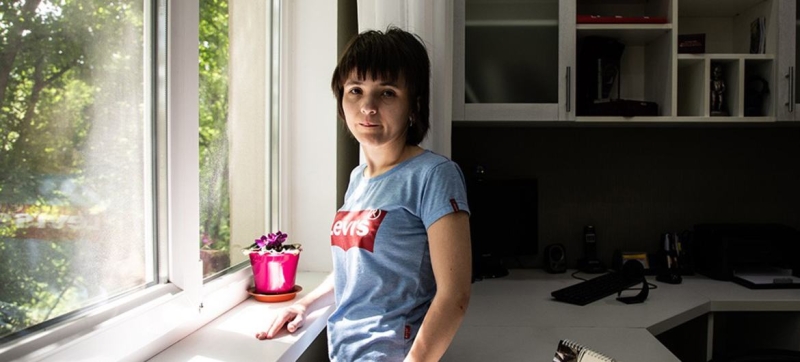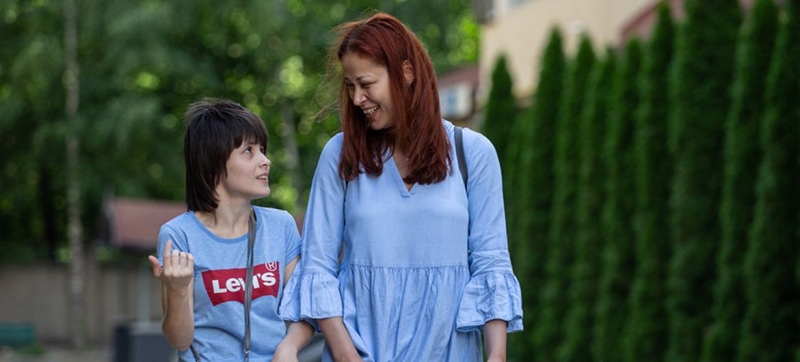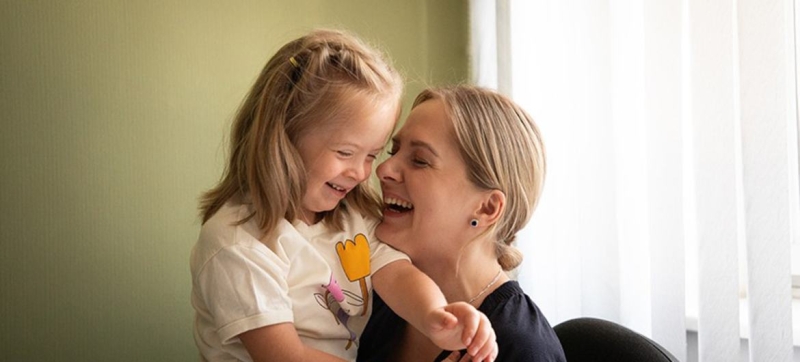
Diana Jalba believes that nothing is impossible. “Nothing is impossible”: how the UN helps defend the rights of people with disabilities in Moldova Healthcare
Diana Jalba likes to say that nothing is impossible. “We should not let disability limit us,” emphasizes the active and talkative 29-year-old woman with cerebral palsy.
“I like living alone in my apartment and being in charge of my own life. I pay my own bills, go to the movies whenever I want, and I don’t have to explain anything to anyone. My only problem is overcoming barriers.”
Zhalba recently completed an internship program with the UN in Moldova. It aims to support inclusion and ensure respect for the rights of people belonging to vulnerable groups who often face discrimination.
Working with mentors, interns gain practical experience and acquire professional skills necessary for future employment, including at the UN.
“The internship helped me on a personal and professional level,” says Zhalba. She has a master’s degree in foreign languages and literature. The girl works as a translator at an NGO in Chisinau. “I learned to cope with my emotions and focus on what I want to do,” says Diana.
“I type and also use a voice system,” explained the girl, who works from home. “I like precision. I check everything, every word, every comma. Sometimes I can be very picky. “I don’t trust AI,” she adds, laughing.
Inclusivity
Moldova ratified the UN Convention on the Rights of Persons with Disabilities in 2010. The ratification led to important reforms and legislative changes, including the 2012 Law on the Social Inclusion of Persons with Disabilities.
However, the fight for inclusion is far from over. There are still many barriers for people with disabilities in public and social life in Moldova.
According to official data, people with disabilities are one of the poorest groups in Moldova. Their employment rate is half that of the general population. Women with disabilities, particularly those in rural areas, face a high risk of violence, poverty and social exclusion.
The UN Human Rights Office works with partners, civil society, persons with disabilities and their representative organizations, and the Government to further advance the implementation of the Convention.

Diana with her mentor Ksenia Siminchuk.
This work includes training, providing guidance and consulting to develop appropriate policies.
“People with disabilities have the right to live a dignified and independent life on an equal basis with others,” says Ksenia Siminchuk, a UN Human Rights official who mentored Diana during her internship.
The women have become close friends. Siminciuc recently helped Zhalba write a good resume and prepare for an interview, and Zhalba now works at the Office of the People’s Advocate of Moldova.
“We need to change our approach and view people with disabilities as participants and co-authors of the social, economic, cultural, civil and political life of our society,” Siminciuc says.
Public Policy
Vasile Cusca, State Secretary of the Ministry of Labor and Social Protection, said the Moldovan government is committed to promoting the rights of people with disabilities, including adequate social protection, adaptation of educational institutions and improved vocational training.
“Moldova has made great progress, but there are still areas where we need to continue working,” he said. Following the adoption of the Law on Social Inclusion of Persons with Disabilities, Moldova developed a national program of the same name and a National Deinstitutionalization Program.
The Ministry of Labor and Social Protection is working with the UN Human Rights Office and international mechanisms. According to Kusca, despite limited funding, the government is working with partners to develop reforms and programs aimed at promoting the rights of persons with disabilities.
“The participation of persons with disabilities is a critical element of inclusion. Not only for legislative reforms and revision of the legal framework, but also, very importantly, for combating stereotypes and negative beliefs in society,” he emphasized.

Lyudmila Adamchuk with her daughter Beatrice.
Change the mentality
Ludmila Adamchuk believes that the most important thing is to change the mentality of the population. Her seven-year-old daughter Beatrice has Down syndrome. Ludmila is an activist for the rights of people with disabilities. With the support of the UN Human Rights Office, she founded Prietena Mea (My Friend in Romanian), an NGO in Chisinau that raises awareness of disability issues and empowers parents of children with disabilities. According to Adamchuk, Moldova is still far from fully accepting people with disabilities.
“We hear about cases where children with disabilities are not accepted into educational institutions under the pretext that they do not have qualified personnel, but these may be examples of discrimination. That is why it is important to change mentalities, as well as to improve the skills of specialists and provide access to the necessary support services,” she explains.
Removing Barriers
Spouses Valeriy Shemyansky and Galina Fedotova are also activists who fight to remove barriers for people with disabilities. Shemyansky, who was born with cerebral palsy, is the president of GLIN, a civil society organization in Transnistria that provides legal, medical and psychological consultations to vulnerable groups, including people with disabilities.
The couple took part in the UN Human Rights Office’s Disability Rights Support Program, which helped them optimize the work of their NGO. The organization works with de facto authorities to change health care regulations and provide social benefits to people with disabilities.
“Many people with disabilities don’t know that they have the same human rights as everyone else,” says Fedotova. “And we want to change that.”
